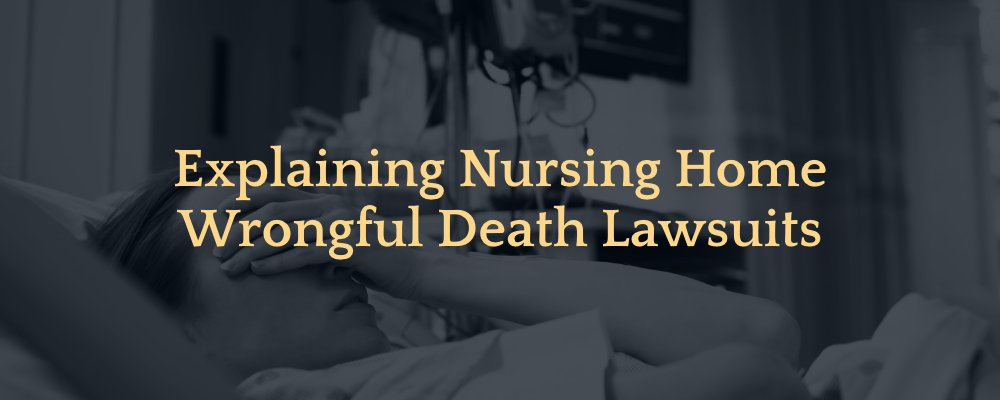
No recovery no fee
When a senior citizen’s care needs exceed what a family can provide at home, family members often place their elderly loved ones in a nursing home with the hope that they’ll live out their remaining years in comfort and dignity, treated with the kindness and respect they deserve. Sadly, common problems in nursing homes, such as understaffing, poor staff training methods, and inadequate supervision sometimes result in a loved one who is lost before their time due to neglect or abuse. Over 15,000 complaints of nursing home abuse and neglect were filed in 2020 alone.
When a nursing home resident suffers an injury or illness due to nursing home negligence, the loved ones left behind deserve justice for their family member and compensation for their damages.

A wrongful death lawsuit is the civil court’s way of redressing a wrong by compensating loved ones for the emotional anguish of losing a family member in a preventable injury as well as for the financial damages caused by the loss. If the accident or incident that caused the loved one’s death was one for which they could file a personal injury claim had they lived, then the deceased’s close, surviving family members can file a wrongful death claim against the party at fault for the death. Proving nursing home liability requires investigating the death to prove the legal points of liability. This means demonstrating the following to be true:
Once a wrongful death attorney gathers evidence such as the medical examiner’s report, medical records, care records, and witness testimony to prove by a preponderance of the evidence that negligence or abuse caused the death, the appropriate insurance company must pay damages to the close surviving family members.
Many nursing homes have high staff turnover rates and overwhelmed and under-trained caregivers. When this combines with high numbers of residents, the results can be a lack of adequate care and supervision. Nursing home injuries and deaths occur through the following forms of negligence and wrongdoing:
Abuse in nursing homes may occur by caregivers, staff, or other residents.
Arizona places restrictions on those eligible for making a wrongful death claim for a lost elderly loved one. This prevents distant relatives from exploiting the death for profit. When a nursing home resident suffers a preventable injury that causes their death, only a surviving spouse or child can file a wrongful death claim. In some cases, younger nursing home patients with impairments also reside in nursing home facilities. In that case, a parent is also eligible to make a wrongful death claim against the nursing home.
When a loved one dies in a nursing home due to neglect or abuse, the loved ones left behind can claim damages such as:
If you suspect wrongful death has occurred to a loved one in a nursing home, speak to a Phoenix elder abuse lawyer about your options with a free consultation on your case.
The personal injury attorneys in Phoenix, Arizona, at Knapp & Roberts have the compassion and trial lawyer skills to tell your story to a jury. We will get to know you and your family so that we can help the jury understand what has happened to you and your family and how it has changed your lives. Obtain the compensation necessary for the injuries and losses you have suffered.